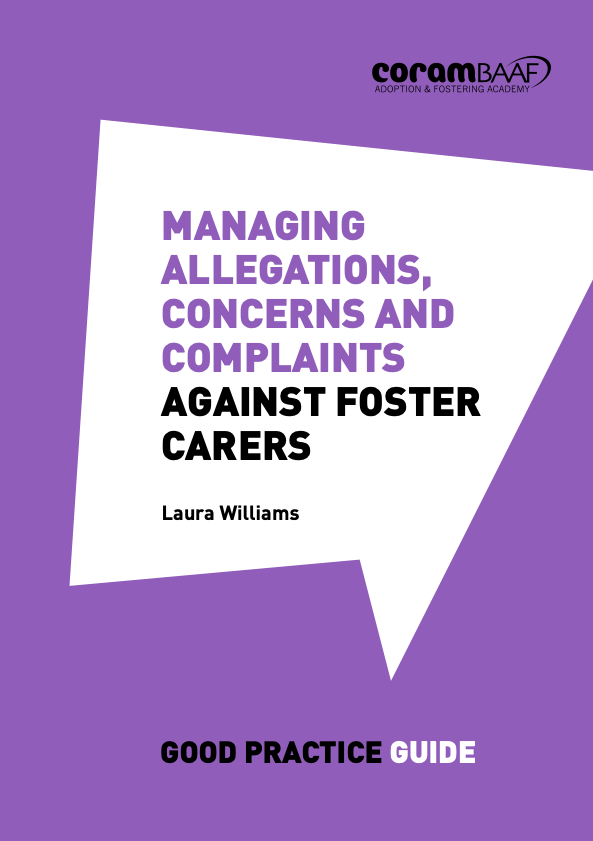
Managing allegations, concerns and complaints against foster carers
£18.95
While most fostered children live safely with their foster carers in loving, secure homes, there is always the possibility that a carer may have an allegation or complaint made against them, for example, by a child or birth relative. There are statutory procedures for investigation, but these are often difficult and delicate situations for agencies, carers and social workers.
Whether a matter presents as an allegation, concern or complaint, further enquiries may reveal a more serious picture than was first apparent. Conversely, a seemingly serious situation may be less worrying once placed in context. Research also highlights the impact of secondary trauma and compassion fatigue on foster carers’ parenting capacity. Clearly, different responses are needed depending on the case's background, and the challenge for practitioners is to assess every incident thoroughly, while maintaining a safeguarding focus and ensuring that carers are treated fairly and with respect.
This practice guide helps practitioners and managers to successfully navigate the complex processes involved in allegations and complaints. Authoritative and thoughtful, it considers not just statutory procedures, but also provides valuable pointers to good practice for fostering staff. By including the voices of children and foster carers from diverse backgrounds, the guide also underlines the importance of careful listening – as a range of views may help to achieve a safe, fair and proportionate response.
Comprehensive, clear and authoritative, this practice guide is a key text for all workers involved in foster care.
Read the contents page and introduction
Addendum to this book
Read our free chapter
Every month we release a free chapter from one of our bestselling publications. For August 2025, we are sharing Chapter 7 from Managing allegations, concerns and complaints against foster carers. Read bout ‘The role of fostering services’. You can download your copy of the chapter, along with the contents page and introduction using the button below.
Listen to the conversation
AVAILABLE IN EBOOK AND HARD COPY
Questions about eBooks? Check out our FAQs
A 10% bulk discount will be applied at the checkout for orders of 10 copies or more on this title.
